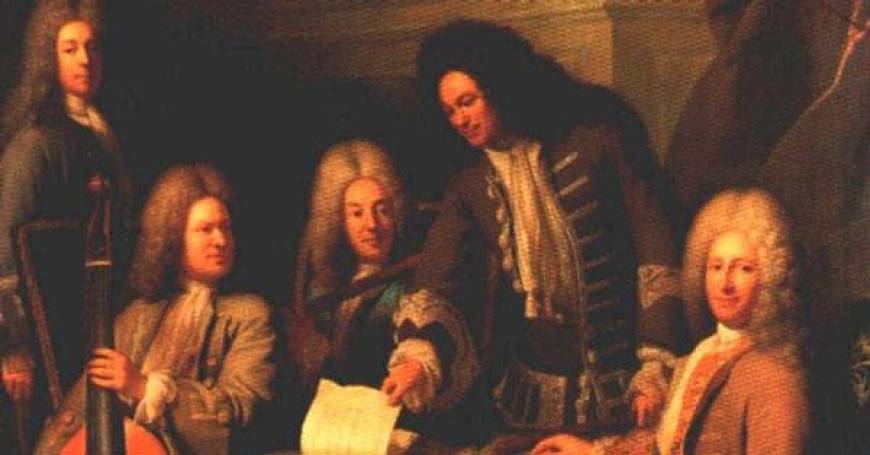
© aesdes.org
If I could take only one style of music to a deserted island it would have to be Baroque music. Music written during that period is full of drama and energy, and it can be very intimate or simply grandiose. It is lively and tuneful, and always seems to express a fundamental and universal order. It also gave birth to opera, and the orchestra became a musical force. My favorite among all these wonderful and expressive genres, however, is the concerto. Soloists on all kinds of instruments started to take center stage and amazed audiences with their technical skills and highly expressive music.
You can probably tell already that Baroque Music was famous for its stylistic diversity. Italy led the way in terms of musical innovation, and the beginning of the 17th century saw one of the most dramatic turning points in the history of music. While earlier music was composed in accordance with the rules of counterpoint that took precedence over the text, the new modern Baroque style now focused on musically expressing the meaning of the words. All this paved the way for the establishment of a modern harmonic language, one we still use today. Countless composers were active during this exciting period in musical history, so we decided to compile a list of the 10 greatest Baroque composers starting with Arcangelo Corelli (1653–1713).
Arcangelo Corelli: Concerto Grosso, Op. 6, No. 8 (Christmas Concerto)
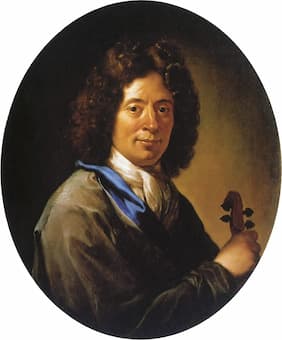
Arcangelo Corelli
The Italian Baroque is famous for its incredible violinmakers. Amati, Stradivari, and Guarneri are names that are still instantly recognizable today. The composer at the center of this golden age of string music in Italy was Arcangelo Corelli. He worked for some very important musical patrons, including Queen Christina of Sweden and Cardinal Pietro Ottoboni, who later became Pope Alexander VIII. Corelli started to compose instrumental sonatas in several sections and movements, scored for two to four solo instruments and support by the basso continuo. These pieces are called ensemble sonatas, and they unfold alternating slow-fast-slow-fast movements. In addition, Corelli was also at the forefront of establishing a new and exciting musical genre, the concerto. This ingeniously pitted a soloist, or a group of soloists, against an instrumental ensemble. Corelli uses many of the harmonic progressions that form the basis of modern tonality, and he was the first composer to gain an international reputation solely on the basis of his instrumental music. He definitely is one of the greatest and most beloved composers of Baroque music.
Jean-Baptiste Lully: Le Bourgeois Gentilhomme, “Marche pour la cérémonie des Turcs”
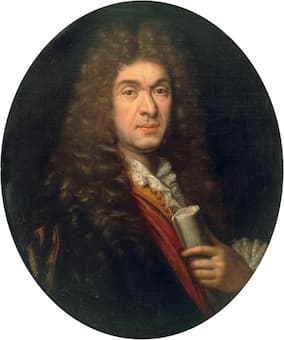
Jean-Baptiste Lully
Jean-Baptiste Lully (1632–1687) was one of the most dominant figures of the French baroque. He originally hailed from Florence and became the Italian language tutor to
Louis XIV’s cousin Anne-Marie-Louise d’Orléans in Paris. He initially served as her chamber boy, but attracted the attention of the young Louis XIV by dancing with him in the magnificent Ballet royal de la nuit. Soon he was appointed “compositeur de la musique instrumentale.” Working with the playwright Molière, Lully produced a number of highly successful comédies-ballets over the year. His claim to fame was the tragédie-lyrique, a French opera in five acts incorporating ballet, chorus and lavish sets. These productions reflected the magnificent life at the court of the Sun King, and it was not uncommon to see machines that made angels fly or huge ships battling stormy seas on stage. Because of such innovations, Lully easily made it onto my list of great Baroque composers.
George Frideric Handel: Messiah “Hallelujah”

George Frideric Handel
George Frideric Handel (1685-1759) was one of the all-time great composers, and everybody still knows his name and some of his music. He started out as a violinist and composed his first operas in his native Germany. Handel then traveled to Italy where he met with Vivaldi and took lessons from Corelli. In 1712, Handel moved to London as Kapellmeister to the Elector of Hanover, who eventually became King George I. Handel arrived in London as a famous opera composer, and as a shrewd businessman, he started three commercial opera companies to supply Italian opera to English nobility. Handel was a resourceful and workaholic musician of great charisma with a genius for invention. And when London audiences turned their backs on Italian opera, Handel reinvented himself and focused on the composition of Oratorios. These works combine sacred dialogues and narrative meditations with music that includes instrumental dances, choral declamations and elaborate arias. With his Messiah, Handel scored a huge commercial hit and it is still one of the composer’s most popular and enduring works. Handel, without doubt, is one of the foremost Baroque composers.
Claudio Monteverdi: Orfeo (Excerpt)
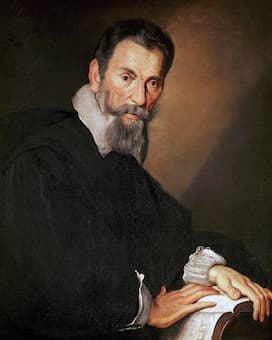
Claudio Monteverdi
Claudio Monteverdi (1567–1643) was probably the most important musician in late 16th and 17th century Italy. He was the first great composer of opera, and he developed powerful ways of expressing and structuring musical drama. Monteverdi instigated a shift in musical thinking that left the late Renaissance and ushered in the artistic expressions of the early Baroque. Monteverdi, according to many historians, is the creator of modern music. In all, Monteverdi composed at least eighteen operas, but sadly only a handful has survived. His first opera L’Orfeo of 1607 blends existing musical styles into a unity that was entirely new. Combining elements of madrigal singing and monody—what we would call recitative today—with dancing and instrumental passages defined Monteverdi’s “innovative creativity and his discovery of a new expressive frontier.” Monteverdi was a superstar of early Baroque music, and he is rightfully considered one of the greatest Baroque composers.
Georg Friedrich Telemann: Concerto in D major for Violin, Cello, Trumpet and Strings
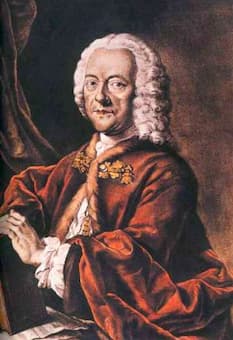
Georg Friedrich Telemann
It might come as a little surprise, but Georg Philipp Telemann (1681–1767) was considered the greatest German composer in the 18th century. He was much more famous than J. S. Bach, and his salary in Hamburg was three times larger than Bach’s in Leipzig. In fact, Telemann might have been the most industrious composer of all time. He wrote over 1,700 church cantatas, almost 50 Passions, and seemingly countless opera. And let’s not forget that he composed massive amounts of instrumental music, among them approximately 125 orchestral suites, 125 concertos, several dozen other orchestral works and sonatas in five to seven parts, nearly 40 quartets, 130 trios, 87 solos, 80 works for one to four instruments without bass and roughly 250 pieces for keyboard. Telemann was the most important composer of German-language operas in the first half of the 18th century, and his concertos do represent the history of that genre in German lands. However you want to look at it, Telemann was one of the greatest Baroque composers.
Barbara Strozzi: Sacri musicali Affetti, Op. 5 “O Maria”
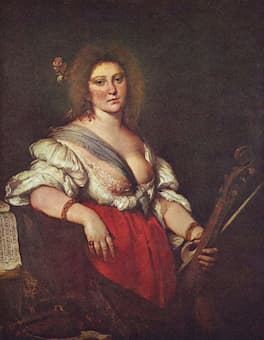
Barbara Strozzi
Barbara Strozzi (1619-1677) was one of the finest singers and most prolific composers of her time. Adopted daughter of the renowned poet Giulio Strozzi, Barbara grew up in the city of Venice and made her mark as a composer by publishing eight collections of songs. She dedicated her opus 1 to Vittoria della Rovere, duchess of Tuscany, with the words, “I reverently consecrate this first work, which I, as a woman, all too ardently send forth into the light, to the august name of Your Highness, so that under your Oak of Gold it may rest secure from the lightening bolts of slander prepared for it.” The majority of her music is written for accompanied female voice, and her settings create an intimate relationship between the words and the music. Frequently, she explores unusual and surprising harmonies, and before her death in 1677, there was more of her music in print than even the most famous composers of her day. No doubt, Strozzi is one of the greatest Baroque composers.
François Couperin: Le Tic Toc Choc ou Les Maillotins
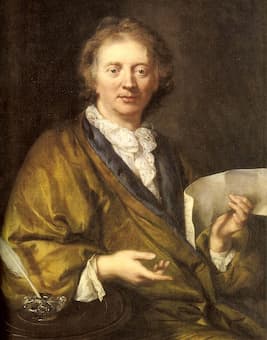
François Couperin
Both Claude Debussy and Maurice Ravel described the Baroque composer François Couperin (1668–1733) as the epitome of French music. A member of a family dynasty of musicians, he established himself as one of the leading composers of his day, and his use of harmony and melodic construction far surpassed his contemporaries. At the height of his career, Couperin was considered the most sought-after harpsichord and organ teacher. Skillfully blending French and Italian musical styles, he published music for organ, chamber ensembles, vocal music and his famous four books of harpsichord music, totaling about 220 keyboard works. His music reflects the social milieu from which it emerged. He was described as the “poet musician par excellence, who believed in the ability of music to express the conflict between personal passion and self-control.”
Henry Purcell: Dido and Aeneas “Dido’s Lament”
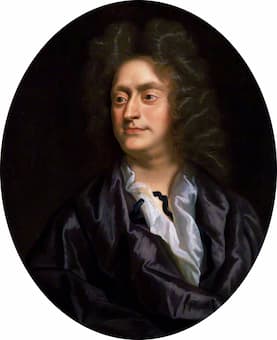
Henry Purcell
Henry Purcell (1659-1695) incorporated Italian and French stylistic elements in his music. However, Purcell’s compositions represent a uniquely English form of Baroque music. He was the son of a court musician, and essentially spent his entire life in Westminster. His royal duties included writing music for special occasions at court. In addition, he also wrote chamber music and became involved with the growing London pubic concert scene. And that included writing incidental music for the theatre. Purcell famously composed a number of semi-operas, and Dido and Aeneas is the only complete English language opera in the 17th century. Purcell was one of the finest and most original composer of his day, and “he gave to the theatre some of his happiest melodic inspirations, distributed among solemn overtures, cheerful or pathetic airs, and delightful dances of every imaginable kind.” Purcell is one of the highly original minds of Baroque music.
Antonio Vivaldi: Four Seasons “Winter”

Antonio Vivaldi
We all know and love the music of Antonio Vivaldi (1678–1741). Throughout his extended career as musical director at the “Ospedale della Pietà” (Hospital of Mercy) in Venice, a post he held from 1703 to 1740, Vivaldi authored roughly 500 concertos, 46 operas and numerous smaller instrumental and sacred compositions. His best-known work, the four violin concertos titled “The Four Seasons,” dates from between 1716 and 1725. Each concerto features three movements and is based on a series of poems. It is one of the very first pieces in which music tells or follows a narrative. I suppose, this music was seriously ahead of its time because the score to “The Seasons” was stored in an attic for over 200 years. Re-discovered around 1950, it has since become one of the most recorded work of all time.
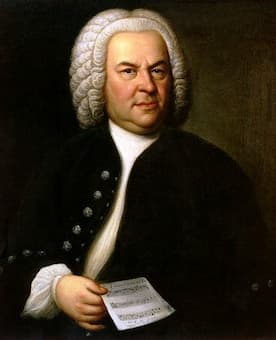
Johann Sebastian Bach
Vivaldi was one of the greatest Baroque composers, and the same is certainly true of the giant of Baroque music, Johann Sebastian Bach (1685–1750). He was born into a large musical family, and he was considered the greatest organ virtuoso of his day. While he did hold a number of smaller appointments, his most important job was as music director and cantor at the Thomaskirche in Leipzig. Bach composed well over 1,000 works, including instrumental and orchestral music and a seemingly endless number of cantatas for liturgical use. While Bach was predictably famous during his lifetime, at the time of his death he was considered old-fashioned. When he died in 1750, the glorious period of Baroque music ended. However, in 2019 a poll among 174 living composers confirmed that Bach was not only the greatest Baroque composer, but also the greatest composer of all time. Now you know my favorites; can you think of other Baroque composers that should be part of this list?
For more of the best in classical music, sign up to our E-Newsletter
Johann Sebastian Bach: St John Passion BWV 245, “Herr, unser Herrscher”

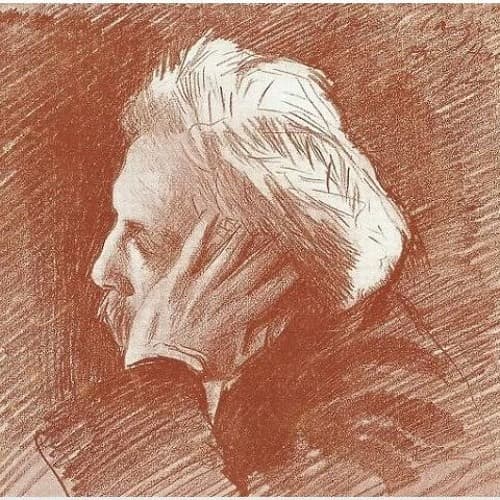
I would add Rameau to my list
Zelenka should be included.